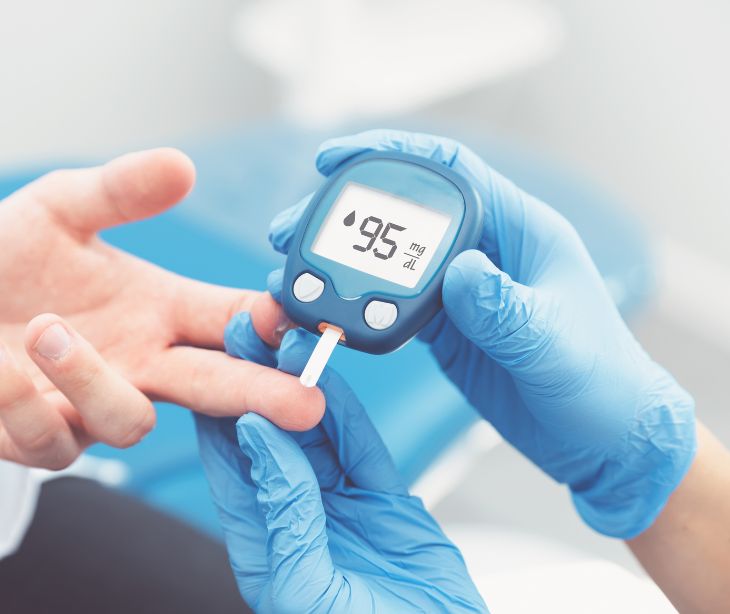3 min read
Using HIPAA compliant email for chronic disease management outreach
Farah Amod
April 3, 2024

Chronic diseases affect millions of people worldwide and require long-term management and continuous support from healthcare providers. To effectively manage these conditions, healthcare professionals must establish efficient and secure communication channels with their patients.
The importance of effective chronic disease management outreach
Chronic diseases, such as diabetes, heart disease, and asthma, require ongoing care and support from healthcare providers. However, traditional methods of communication, such as phone calls or in-person visits, can be time-consuming and inefficient. Effective outreach allows healthcare providers to monitor patients' health status, provide timely interventions, and educate them on self-management techniques.
According study titled E-mail communication in the management of gastroenterology patients, “E-mail can play a valuable role in enhancing the management of chronic diseases by improving continuity of care while allowing healthcare professionals flexibility in responding to non-urgent issues, with the side benefit of affording consultation time for sicker patients.” It further states that, “e-mail correspondence between physicians and patients improves communication efficiency, leads to more rapid therapeutic interventions, improves compliance and adherence to therapeutic regimens, provides economic and ecological benefits, and enhances the self-management model.”
However, healthcare providers need to use HIPAA compliant email to ensure the confidentiality and security of patient health information exchanged through electronic communication. By using HIPAA compliant email, healthcare providers can maintain the privacy of patient information, safeguard against unauthorized access, and adhere to legal and ethical standards governing the handling of sensitive medical data.
Read also: HIPAA compliant email for support groups and community outreach
The benefits of using HIPAA compliant email for patient outreach
Using HIPAA compliant email in chronic disease management outreach offers several advantages:
- It allows for efficient and convenient communication between healthcare providers and patients. Through email, healthcare professionals can easily send reminders, educational materials, and personalized care plans, ensuring that patients have access to information at their fingertips.
- HIPAA compliant email enables seamless collaboration between healthcare providers within a multidisciplinary care team. By securely sharing patient information and progress updates via email, doctors, nurses, and other providers can work together to maintain coordinated care.
- HIPAA compliant email improves patient engagement and empowerment. Patients can actively participate in their own care by asking questions, sharing concerns, and receiving prompt responses from their healthcare providers. This level of communication fosters a therapeutic relationship and promotes patient-centered care.
See also: HIPAA Compliant Email: The Definitive Guide
Best practices for using HIPAA compliant email in chronic disease management
While HIPAA compliant email provides a secure platform for communication, healthcare professionals need to follow best practices to have effective and compliant use. Some practices include:
- Obtain patient consent: Before initiating email communication with patients, obtain their written consent acknowledging the risks and benefits of electronic communication.
- Use secure email providers: Choose HIPAA compliant email providers that adhere to security and privacy standards.
- Implement strong passwords: Create unique and complex passwords for email accounts to prevent unauthorized access.
- Encrypt emails containing PHI: Enable encryption for all emails containing protected health information to ensure confidentiality.
- Regularly update software and systems: Keep email software and systems up to date with the latest security patches and upgrades to minimize vulnerabilities.
Overcoming challenges in using HIPAA compliant email for patient outreach
While HIPAA compliant email offers numerous benefits, there are also challenges that healthcare providers may face during its implementation:
- Technological barriers: Some healthcare professionals may lack the necessary technical skills to effectively use HIPAA compliant email systems. Training and education programs can help overcome this barrier.
- Resistance to change: Adopting new communication methods may face resistance from both healthcare providers and patients. Education and clear communication about the benefits and security features of HIPAA compliant email can address this challenge.
- Integration with existing systems: Integrating HIPAA compliant email into existing healthcare systems, such as electronic health records (EHRs), can be complex. Seamless integration is needed for the smooth flow of information and to minimize disruption in workflow.
FAQs
Why do I need compliant email systems?
Secure email communication allows protected health information (PHI) to be transmitted, stored, and accessed safely. PHI contains sensitive information about an individual's health, and unauthorized access or disclosure can lead to harm or discrimination. Compliant email systems help keep this information confidential and private.
Are there penalties for HIPAA violations?
Yes, there are penalties for HIPAA violations, ranging from civil to criminal penalties. Common email-related violations include sending unencrypted PHI, failing to secure email systems, unauthorized access to patient data, and improper handling of PHI in email attachments.
How can I communicate securely with patients and colleagues?
Providers can use secure email services like Paubox to communicate securely with patients and colleagues.
How often should patients receive emails with disease management tips?
The frequency of emails may vary depending on the patient’s preferences. Providers can determine relevant information to share via email every few weeks to remain top-of-mind for patients without becoming repetitive or spammy.
Read also: Top 10 HIPAA compliant email services
Subscribe to Paubox Weekly
Every Friday we bring you the most important news from Paubox. Our aim is to make you smarter, faster.




